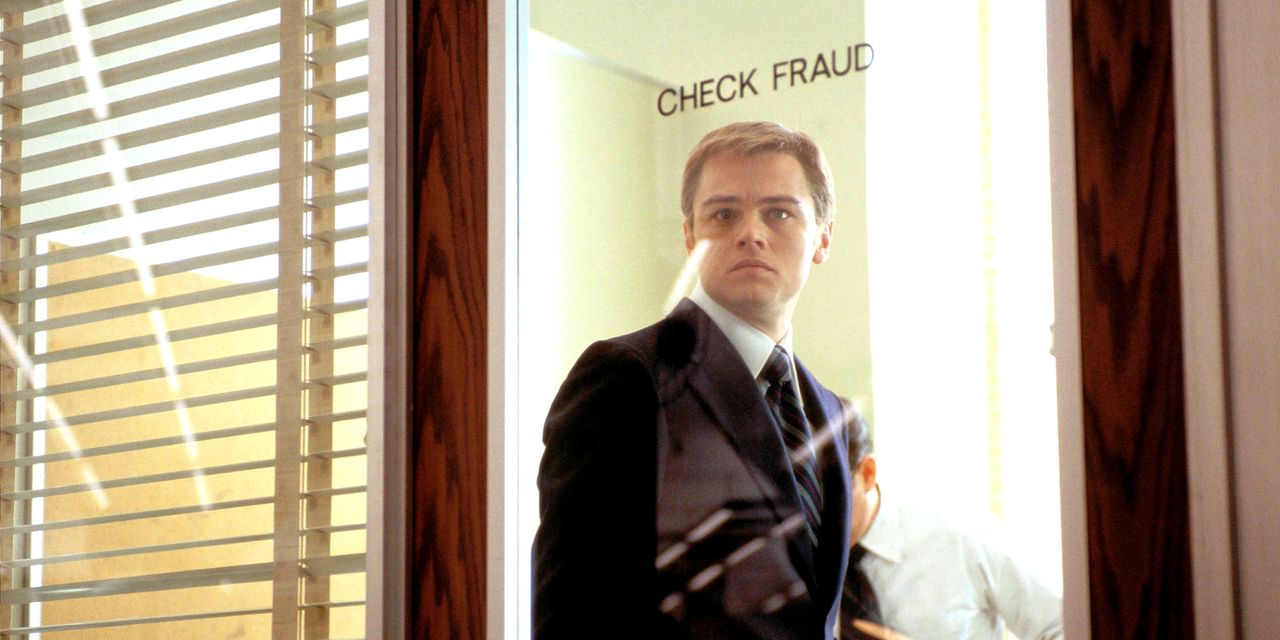
Scammers have used the pandemic to their advantage, and they’re not close to done, said Frank Abagnale, the man whose life was depicted in the film “Catch Me If You Can.”
Abagnale knows about scams. As viewers may remember from the 2002 movie, Abagnale, played by Leonardo DiCaprio, was still a teenager when he began orchestrating scams worth millions of dollars, forging checks and assuming other identities, including a pilot and doctor. Since then, he has gone on to teach seminars about fraud prevention to federal agents, law enforcement officers and financial institutions. AARP commissioned Abagnale to write a book last year, called “Scam Me If You Can,” to help Americans combat criminals’ attempts at stealing their identity and swindling them out of their life savings.
In his research, Abagnale found that while millennials are more likely to be scammed, seniors tend to lose more money — because they have it to lose, he said. There are also a list of common scams people fall victim to, including those involving federal agencies, online romances, sweepstakes and “emergencies” with family members. The pandemic and the resulting chaos has fueled the flames for this fraud, which will continue as the world tries to move past the coronavirus, he said.
See: Scammers are preying on borrowers looking for student loan relief
In all scam situations, there are always ways to identify when something isn’t right. “No matter how sophisticated the scam was or how amateur the scam was, there were two red flags,” he said.
The first: Asking for money immediately — in these scenarios, the person on the other side of the phone, email or text message needs you to give him your credit card or bank account number at that moment.
The second: Especially in the romance schemes, where the two get to know each other and talk often online or on the phone, scammers will try to build a rapport with their victims and then say they can’t meet in person because of an operation or financial dilemma. “If people would learn those red flags, they’d see them come up,” Abagnale said. “But people are basically honest and because they’re honest, they don’t have a deceptive mind.”
One example: Be on your guard when caller ID for a phone call says the FBI, Medicare or police department are calling. Identity thieves can easily manipulate caller ID to show any agency is calling, and they may say there’s a problem that needs to be addressed immediately. A police department won’t say you have to pay bail online, or try to prevent you from going to the local precinct to handle the situation, Abagnale said.
Abagnale spoke with MarketWatch about other ways in which scammers have become more sophisticated, and how Americans — especially older individuals — can protect themselves.
MarketWatch: Do you think the pandemic has led to an increase in scams — or could potentially lead to more scams?
Frank Abagnale: The pandemic has led to an uptick of 400% in scams. Scammers follow the headlines so whatever is in the headlines become the scams. I don’t think we’ve seen half of it yet. We’ll see scams involving the COVID-19 vaccine. There are so many apps, we’re in a pandemic-influenced environment and the threat factor goes up. I think we’ll see a lot of people trying to sell vaccines or tell you if you pay a fee, you’ll get the vaccine sooner. Of course, you have everyone working from home and on the computer, so there are more targets than they normally would have to pursue.
Usually scammers are out to get money, get a profit or sell you something, but there are a lot of malicious scams where they’re just trying to cause harm to other people. And of course there’s the fact that you can do these things from thousands of miles away, while sitting with your laptop and a cup of coffee in your hand. You never see the victim, the victim never sees you. Back years ago, we had con men, which stood for confidence men. They gained your confidence. They were dealing with you one on one. They were well dressed, they were well spoken, they had a great vocabulary and great personality and you came to like them. And they had a little emotional involvement with you and sometimes there was a little compassion where they would say, I’m not going to steal all of this person’s money, just some of this person’s money. Today you’re dealing with someone in Russia, North Korea, China, India, Jamaica. They never see their victims. There’s no compassion. They’re just out to steal everything they can from you.
Don’t miss: You get a call that you’ve been exposed to coronavirus. How to make sure a contract tracer isn’t a scammer
MW: In light of COVID, what are some of the newest ways scammers are trying to take advantage of their potential victims? There are so many platforms, like social media, text messages, phone calls, etc.
Abagnale: Understand no government agency will telephone or email you asking for personal information. This is rule No. 1. When you get that kind of email or call, hang up the phone because you know at the beginning that it is a scam. Anytime a red flag comes up they’re asking for your Social Security number, date of birth, address or where you bank.
I am not on any type of social media. Identity thieves only need two to three pieces of information and the two most important are where you were born and what’s your date of birth. If you tell me that on social media, all the rest is easy for me to steal your identity.
During the pandemic you have to watch for people trying to sell you cures and things to use during the pandemic as you see advertised on TV, on the radio and in papers. If you didn’t solicit that call or email, you don’t know who is on the other end of that line — 99% of all email attacks rely on the victim taking action.
I live on three simple rules: prevention, verification and education. Prevention because once you lose your money, you’ll never get your money back. Verification — you have to verify everything, even if someone recommends a financial adviser to me…I have to check that person out before I trust them with my money and life savings. It’s unfortunate but everything needs to be verified. And finally, education is the most powerful tool. If I can explain to you this scam and how it works, that’s the most important thing.
MW: How can people — especially older people — protect themselves?
Abagnale: AARP has a call center in Denver for fraud called Fraud Watch Network. You can call that number if you think you’re being scammed or you think someone has already scammed you and don’t know what steps to take next. You can be 18 years old, not an AARP member, it’s there. Your attorney general in every state also has great people in their consumer divisions that can answer those questions for you. I found in my career you get more of a response from calling the attorney general and getting them to do something than calling the police — they can answer questions for you, such as if you should send money to a charity. People never take advantage of all the services banks have, such as account and security alerts, business update alerts, balance alerts. They’ll alert you on your cellphone if someone is trying to write a check or transfer money out of your account or use your credit card. Most of the time those services are free just for banking with them.
And finally, this is the best advice I give everyone and use myself — I don’t have a debit card, I only use a credit card. Every day of my life. If I buy something online and it comes broken and the vendor refuses to take it back, my credit card takes care of it. If I buy something and it doesn’t show up, my credit card takes care of it. When you use a debit card, every time you pull it out you’re exposing the money in your bank account. You can use it 20 times a day for 20 years but you’ll never raise your score by one point. In all the investigations during the hacks at Target, Home Depot, TJ Maxx — after the breach when they interviewed people, there were those who said they used their credit card and a few days later it was canceled and FedEx sent them a new one. But another person who used a debit card had to wait three months while the investigations were ongoing to get their money back. I simply use my credit card to eliminate personal liability. I understand some people don’t handle money well and have to use a debit card, but if you manage it well and want to raise your score, and make sure you’re not out any money, the best security device in the world is a personal credit card. And as for how you get cash, I ask the bank for an ATM card — not an ATM debit card.
Especially with seniors, I also tell them to freeze their credit.
MW: What role should family and friends have when it comes to helping older people protect themselves?
Abagnale: Always make sure you are looking and just remind them these scams are going on. Just like with my book, people read it and it tells you every scam. A year later something happens and they can say, I think I read about that, pull out the book and see how it works. AARP has a lot of resources for this and you do not have to be a member. There are tools out there to educate people. But it’s very important loved ones are aware of these things.
People are basically honest. They can’t believe people do these things but unfortunately, they do. If you make it easy for someone to steal from you, it is unfortunate, but chances are someone will, so don’t make it easy.











Add Comment